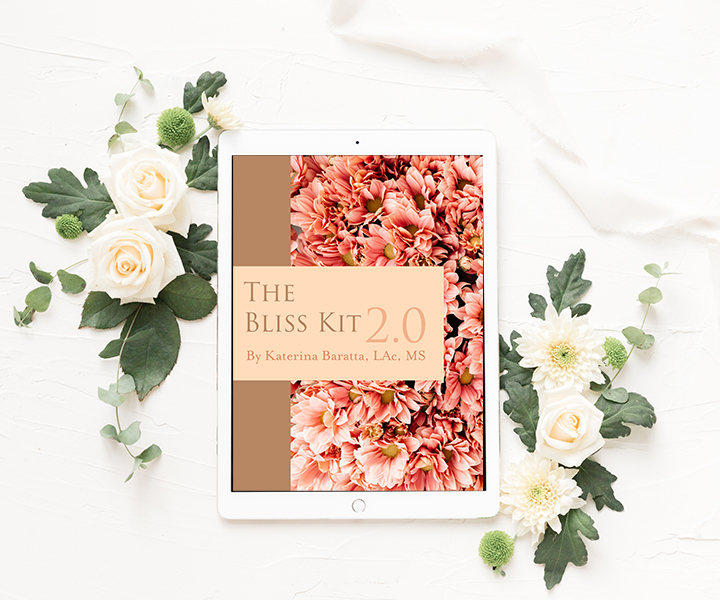Stress-Management: 4 Simple and Scientifically-Backed Strategies
You’ve probably heard by now that chronic stress plays a role in up to 90% of diseases, including both mental and physical health conditions. (1)
While it’s not necessarily the sole cause of these conditions, chronic stress can weaken the immune system, disrupt hormonal balance, and increase inflammation in the body, all of which can contribute to the onset or progression of disease. (2)
I’m not going to stress you out more by giving you a list of all the negative outcomes chronic stress can have, but two things are clear:
- Chronic stress has become the norm in our society.
- Since life’s chaos isn’t slowing down anytime soon, you have to prioritize stress management if you want to live a long and healthy life.
But stress-management itself is a stressful topic for many people.
Understandably, because finding time for all the things that have been proven to reduce stress just adds more stress-inducing boxes to your to-do list.
So the key is to make stress-management as easy and automatic as possible.
Here are 4 simple, scientifically-backed stress-management strategies you can use right now to reduce your stress:
1. Mitigate the Effects of Stress by Improving Your Gut Health
Gut health is directly linked to mental health and resiliency.
A healthy gut microbiome has been shown to help mitigate the effects of stress by promoting resilience and improved stress response in the nervous system. (3)
So how can you improve your gut health?
A healthy gut is one that contains lots of diverse strains of microorganisms.
One of the best ways to diversify your microbiome is by eating 20-30 different plants every week.
This can include fruits and vegetables, herbs and spices, whole grains, legumes, nuts and seeds.
Most people also benefit from increasing their intake of pre- and probiotic foods to about 3x/week, but it depends on your personal constitution.
Related: What’s Are Pre and Probiotic Foods? What’s the Difference?
If you eat nowhere near this much variety yet, start slow and aim to add in 2 or 3 more plants every week to give your gut some time to adjust.
Another pro tip: If you have a hard time digesting beans and whole grains, see what happens if you soak them (from their dried form) for 24 hours and rinse them off before cooking.
Key takeaway: Stop counting calories, start counting plants!
2. Reduce Stress with Mindfulness
Over the last decade or so, meditation in the Western world has moved from a fringe, woo-woo practice to a scientifically-backed, well-respected stress-management strategy. (4)
But it can be challenging to find 20 minutes to sit on a cushion silently every day unless you’re really motivated or have already experienced the life-changing benefits of a sustained meditation practice for yourself.
Not to worry.
If a silent seated meditation feels like too much for you, mindfulness is an easy way to bring the benefits of meditation into your everyday life.
The idea is to train yourself to notice when your mind is blabbering on unnecessarily, and bring your focus more fully into the present moment.
In this way, you don’t just feel less stress when you practice mindfulness, you also enjoy your life more as you open yourself up to experiencing life in a new way.
If you’d like more guidance in getting started, or want to deepen your mindfulness practice after taking some time off, check out my 14-day online course, The Practice, which will guide you through various ways to add mindfulness into your life.
Learn more about The Practice, a 14-day self-study embodied mindfulness program that combines modern neurological research with ancient techniques to help you cultivate more ease, joy, and inner peace in everyday life.
3. Get Your Next 3 Acupuncture Sessions on the Books
One of the biggest benefits of acupuncture is its effect on the nervous system.
Studies are showing that acupuncture can significantly reduce chronic stress, anxiety, depression, PTSD, and other mental health conditions. (5, 6, 7)
But one of the biggest barriers to getting acupuncture as often as you need it is to remember to book it.
Remember, it’s always easier to cancel if something comes up! Plus, you’re more likely to get a time-slot that you like when you book in advance.
Related: How Many Acupuncture Sessions Do You Need Before You Feel Better?
If you don’t have an upcoming appointment, call today and book your next 3 sessions in one go.
Because once you have acupuncture on your schedule, you don’t have to think about it anymore, it’s easy to follow-through, and you have time set aside to melt some of that stress away.
Call now to your next 3 acupuncture sessions on the books: (503) 372-6463
4. Get Herbal Support for Stress Management
There are different categories of herbs that can help you manage stress in different ways.
Sedatives are strongly calming and can help promote sleep when your mind is going a thousand miles a minute.
Nervines are herbs that turn down an overactive sympathetic nervous system (responsible of your stress response) but don’t knock you out as strongly as sedatives. Just like sedatives, these can be used on an as-needed basis.
Adaptogens are herbs that help to rewire your stress response so you have an easier time handling whatever surprises life throws your way. Depending on the herb, they can also support healthy hormone flow, improve your immune response, help you sleep better, and increase energy.
Unlike sedatives and nervines, adaptogenic herbs work most effectively when taken daily over an extended period of time. Effects are usually noticed between 3 weeks and 3 months.
Related: Free Guide on the Best Herbs for Anxiety
These are just the most obvious stress-management herb categories, but there are more.
An experienced herbalist like Katerina will be able to help you identify any underlying imbalance you may have in your mind-body system that could be contributing to increased stress for you.
Ask about herbs at your next acupuncture appointment, or book a holistic health and wellness consultation with Katerina to get personalized herbal and lifestyle recommendations to help you better manage stress so you can feel better, more often.
I can’t wait to see where this takes you!
References:
1. https://www.ncbi.nlm.nih.gov/pmc/articles/PMC5476783/
2. https://www.yalemedicine.org/conditions/stress-disorder
3. https://www.ncbi.nlm.nih.gov/pmc/articles/PMC8065970/
4. https://www.apa.org/topics/mindfulness/meditation
5. https://www.georgetown.edu/news/protein-linked-to-stress-reduced-by-acupuncture-in-rats/





